
Around the Bloc: German Police Disprove Gang-Rape by Migrants
There is no evidence of a sexual offence against the 13-year-old girl from a Russian-speaking community in Berlin, German prosecutors said.
More...We kindly inform you that, as long as the subject affiliation of our 300.000+ articles is in progress, you might get unsufficient or no results on your third level or second level search. In this case, please broaden your search criteria.

There is no evidence of a sexual offence against the 13-year-old girl from a Russian-speaking community in Berlin, German prosecutors said.
More...
After school principal bombarded with anti-Islam messages, he and students stand behind girl originally from Yemen
More...
Hungary prime minister further burnishes his anti-migrant credentials.
More...
Migrants clashed with police on Macedonia’s southern border over the weekend.
More...
Council of Europe’s top rights official urges Budapest to scrap laws that criminalize migration.
More...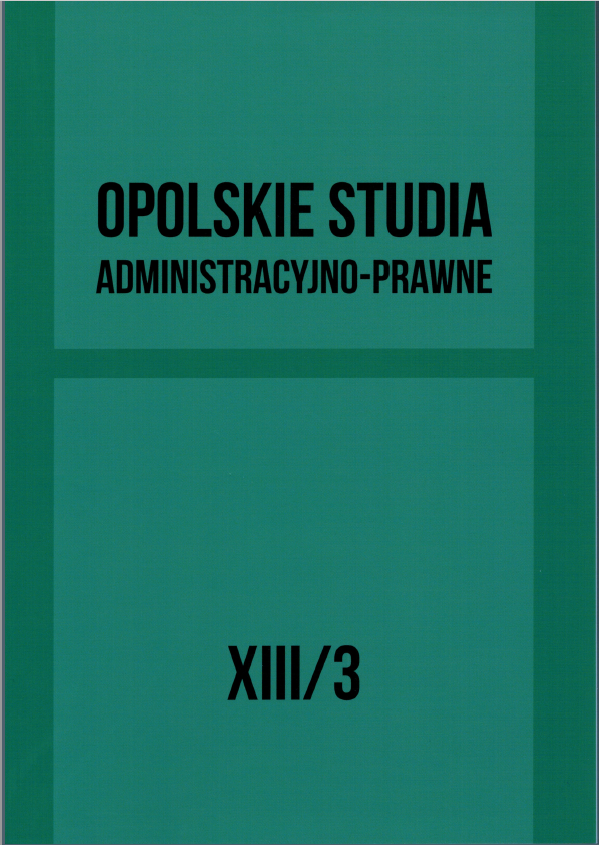
This publication deals with the current legal and social situation of women in Afghanistan. The author analyzes the process of formation of the legal position of Afghan women from the moment of the country’s liberation from under the Taliban occupation in 2001. She concentrates on indicating relevant legal regulations and guarantees, as well as – primarily – analyzes the degree of respecting them. Consequently, she discusses selected forms of violence against women which is persistently present on the territory of Afghanistan. The author elaborates on specific cultural phenomena and acts against fundamental women’s rights, such as baad, baadal, the so-called “honor” killings, and punishing women for running away. These points lead to the conclusion that the enacted laws are merely an empty shell and women’s situation is far from stable.
More...
This article is an attempt at a sociological reconstruction of the identity of the dangerous recidivist or pathologic criminal – a juridico-medical subject who possesses a hybrid constitution of criminality and psychopathy – as it was constructed in the Bulgarian penal practice. The analytical problem, which guides me here, is: how the power’s system of cognitive relations between the juridical concept of “recidivism” and the medical notion of “pathology” work out through the bipolar medium of the criminological term of “danger”. There are three discourse conditions of possibility for building a similar subjective constitution: on the one hand, diffusive scattered particularities of the character-behavior of the law violator were condensed, subordinated, generalized through the psychological concept of “personality”. On the other hand, the real capacity of the notion of “pathology” was optimally broadened; as such, it now covers not only the referent field of the illness, but also the “irregularly” constructed personality, which demonstrates itself publicly through typical antisocial features. The third discourse operation accomplishes on the juridical concept of “recidivism”; within the institutionally stigmatized identity of the recidivist, there is deposited completely biography and crime, dangerousness and anomaly, therefore criminality and psychopathy. Here, the biomedical concept of “instinct” is a fundamental bearer of the problem of anomaly or once more the engine by means of abnormal criminality fi nd out the principle of its own coordination. In front of us is the dangerous recidivist or the pathologic criminal; within his/her social figure obviously appear in what manner law and medicine, application the criminal justice and explanation the psychiatric truth is impossible to function separately.
More...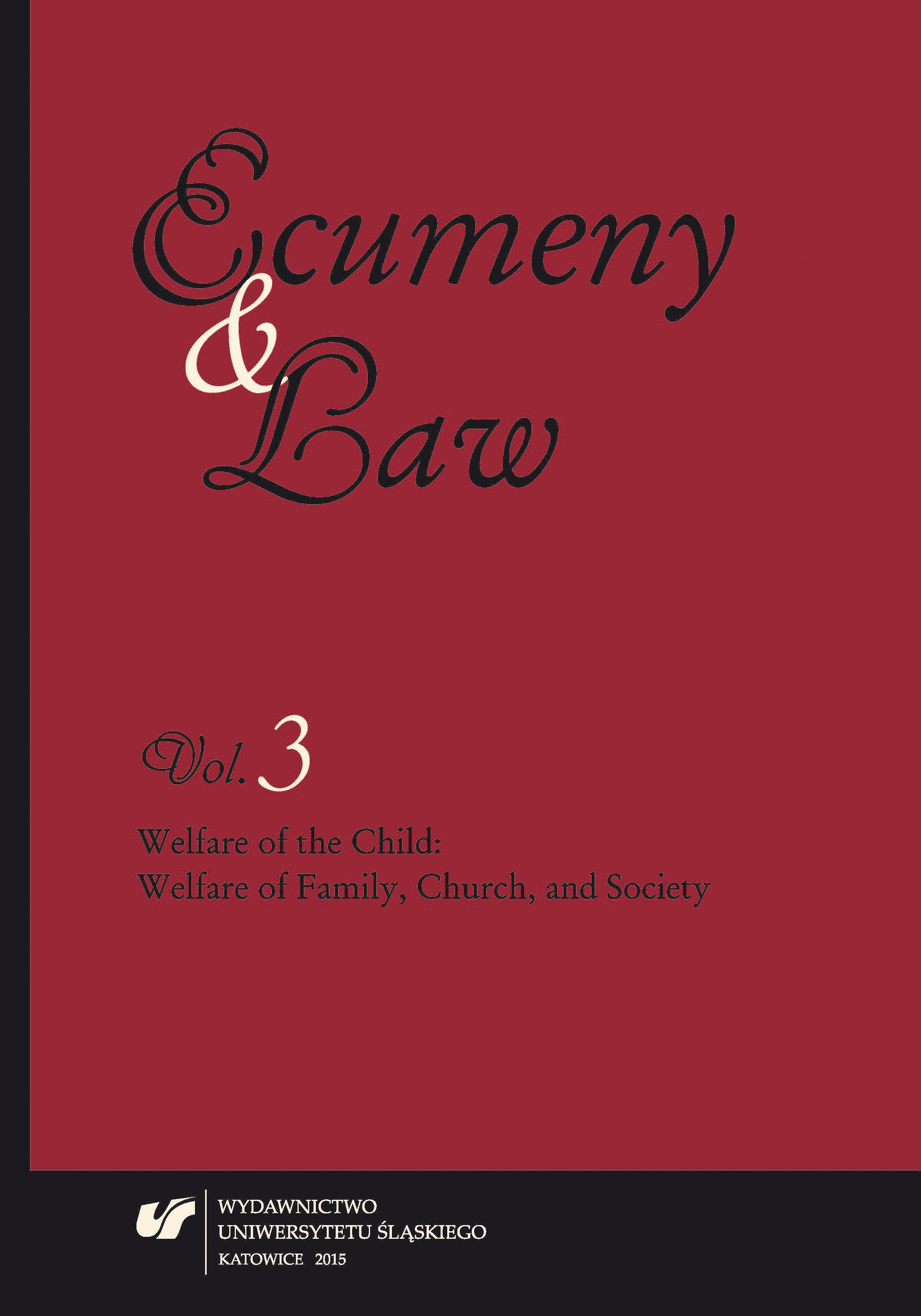
The author touches upon the subject matter of the rights of a child within the vista of the social conditions in the micro and mezosocial perspective. In the initial part of his considerations he indicates toward the challenges that the ageing society has to face, as well as evokes the phenomenon of love — as not only an ontic value but also biological and demographic. A natural destiny and biology of the body is ageing, we should accept such a natural consequence, which for ages has been difficult and led toward negation and acknowledgement that nature can be cheated, or improved. As a result new offers appear, be it within the scope of medicine (medications that help preserve the potency regardless of the age) and also beauty and plastic surgery, which subjects to correction the natural flabbiness of the skin, its senile spottiness and naturalness. What follows the possibilities and technologies is genetic engineering and modification connected with conception, creating new life, as well as its deprivation (euthanasia). The new possibilities kindle human passion, dream of perpetual youth, deny and disclaim the law of nature. They strengthen these “dreams,” elements of cultural narration, which talk people into recognizing new axiology, accepting every “modality” of the current ethical, moral, legal and customary axioms. What also appears within the scope of the “dreams of eternity” is the necessity of commercializing emotions, interpersonal bonds, using human embryos, organs, exploitation of children and their abuse. In spite of the proclamation of rights and respect toward Human Person, regardless of age, the letter of law and declarations are not a sufficient guarantee to protect and care for children and childhood effectively. In the evoked, numerous examples of destroying the nature of childhood and treating children atrociously, the Author reveals claptrap and ineffectiveness of signatories of manifold documents and declarations on the one hand and touches upon the issue of our individual, personal responsibility for the fate of the youngest ones on the other. He emphasizes, both by generously making use of referred ideas conceived by Saint John Paul II, as well as by referring to Janusz Korczak, or Ellen Key, that the fate of the child is in our, adults’ hands. Therefore, if “our adulthood grows wild,” it is difficult to hope that we will behave properly and accordingly toward those who are weaker, smaller and dependant. In the face of the above, our adulthood, in its humanistic dimension, must continuously become better, more mature and also more beautiful, in order to meet the challenges which we face and which are connected with protecting and caring for the youngest ones.
More...
The interest of the offspring (their conception and education), as one of the purposes of the marriage, requires taking special care of infants, thus, minors in the Church, who are below 7 years of age. The expression of this care can be, among others, ecclesiastical legislation, in the area of which, despite organic family law, the legal status of the infant has been stipulated distinctly. As far as the live-born infant is concerned, rights following from their individual natural personality, among others, right to life, parental care, human education or reception of baptism have been stipulated. As regards the baptized infant, who becomes persona in Ecclesia by reception of their first sacrament (can. 96 of CIC), provisions of the code sanction their numerous fundamental rights, among others, right to moral and religious education, to grow up in faith or right to other sacraments. The traditional, ruling for centuries, model regarding legal position of minors, which dominated in legal experience of the Church, has been amended by the Second Vatican Council, the post-council codification of the canonic law has overcome former situation only partially. However, it shall be added, that the ecclesiological renewal influenced slowly and gradually the canonic legislation and the doctrine, and this process has not been finished yet, and a new, post-council codification has overcome the former situation only partially. However, the focus of the doctrine on the central position of human person in the canonic law has progressively become even more visible.
More...
The article undertakes the issues of legal protection of the conceived child in Polish law. The analysis of Polish legislation and the Polish doctrine concerning the civil law situation of nasciturus leads to the conclusion that Polish law currently in force is contrary to the Convention on the Rights of the Child of November 20, 1989 which demands legal protection of a child both before and after birth. On the one hand, Polish law partially protects certain rights of the conceived child, and on the other — deprives it of the most fundamental rights, the right to life. Without the right to life, exercising any other rights by nasciturus is a fiction.
More...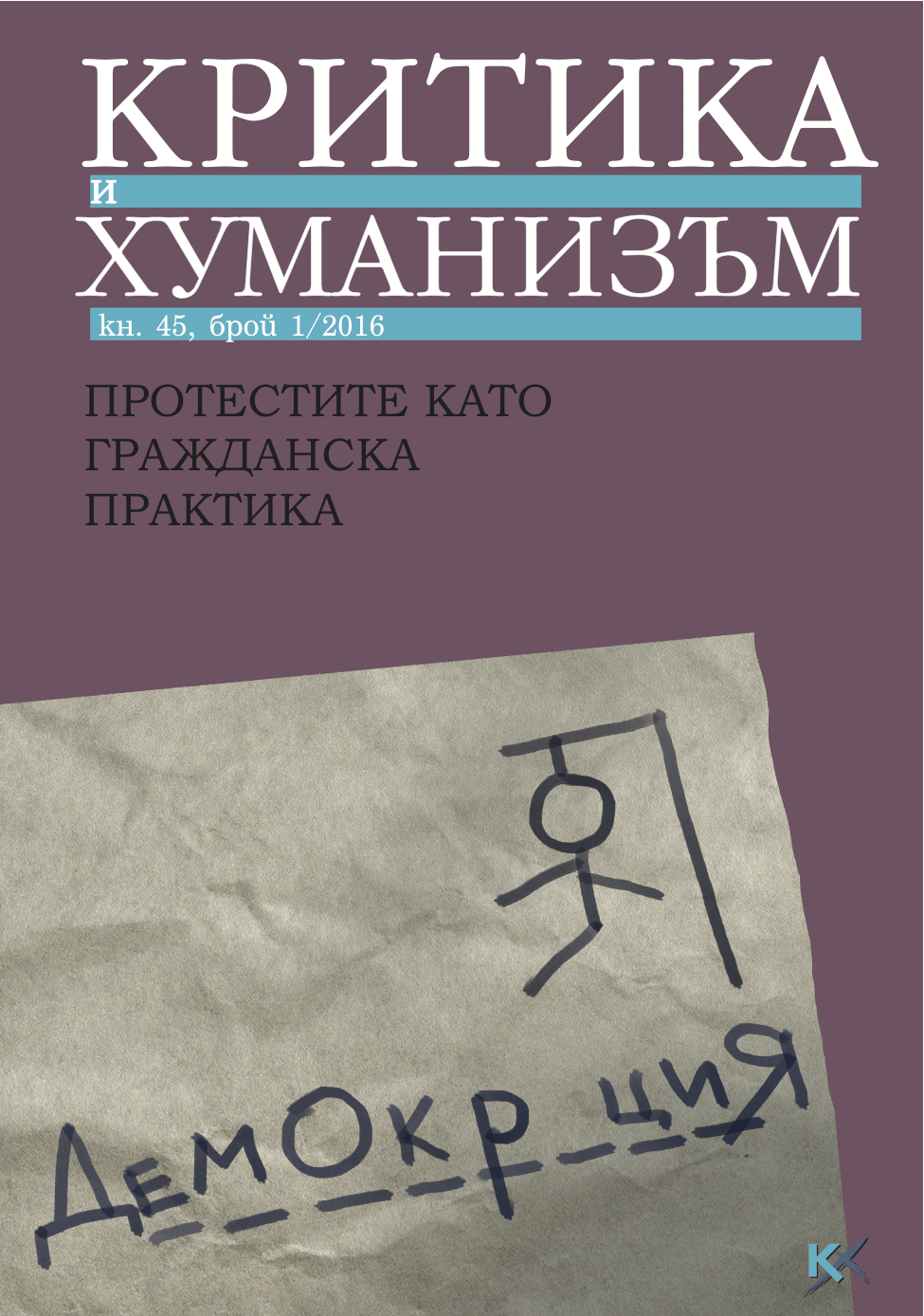
For several months in 2013-2014, thousands of Ukrainians and Bulgarians participated in anti-government protests. However, the outcomes could not be more different. The Bulgarian government politically survived #DANSwithme, while Euromaidan precipitated President Yanukovych’s fl ight from Ukraine in late February 2014. Why did #DANSwithme gradually dissipate, while Euromaidan escalated into the worst episode of political violence since Ukraine’s independence? We know that medium levels of repression applied inconsistently during protests can lead to radicalization and violence. But we do not know whether the judiciary’s behaviour before and during the protests could affect the likelihood of an escalation towards violence. This article proposes a complementary explanation of protest radicalization, which posits that recent, unambiguous, and effective use of a pliable judiciary by political incumbents to punish and undermine the opposition raises the odds that both sides will engage in violence. Politicized selective justice raises the stakes ofvictory both for the government and for the protesters, and reduces the possibility of a compromise. In Bulgaria, where the judiciary, albeit politicized, has not been effectively used to undermine political opponents, protesters perceived the government’s attempts to engage in legal persecution as a hassle and the chances of imprisonment as remote. Neither should the Oresharski government have expected to be prosecuted in the event of losing offi ce. In Ukraine, by contrast, the judiciary had a clear recent track record of politicized selective justice both against protest participants and high-level politicians. Former PM Yuliya Tymoshenko and another Orange Revolution main actor and former minister of interior, Yuriy Lutsenko, served lengthy prison sentences. Consequently, both the leaders of the opposition and Yanukovych and his coterie probably expected that imprisonment would be inevitable if they did not come out as winners of the Euromaidan standoff.
More...
Hungarians are expected to reject a EU plan for quotas to settle asylum seekers in an upcoming referendum.
More...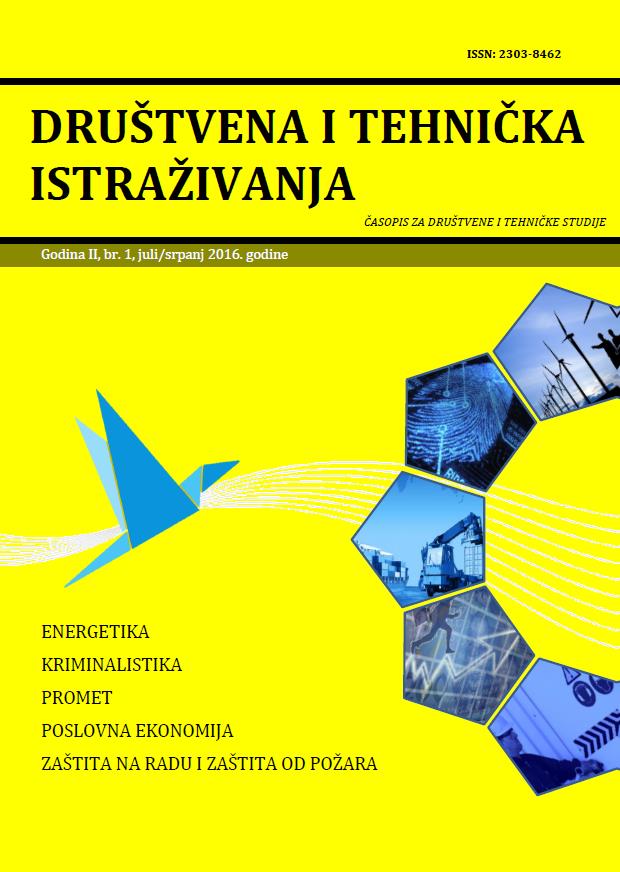
Domestic violence receives alarming proportions around the world and is one of the most dominant issues jeopardizing human rights. Victims of violence are most vulnerable categories of society: children, women and the elderly which constitute an obstacle to the normal development of the community. Although a portion of the authors there is the view that the problem of domestic violence should be resolved within the family without reaction of society, our work is conceived precisely to the social reaction to this phenomenon. We tried to answer which are the reactions that the community can take to prevent this phenomenon to the extent possible. Thus, we first examined the general issues that are characteristic for occurrence of domestic violence. We performed an analysis of existing regulations in the Republic of Sprska governing this area. In this regard, we have conducted research of practical application of such legislation in the area of Banja Luka. We wanted to find out the extent to which violence is present in this area and which are the most common forms of violence. As a source we used the annual report the Public Security Center Banja Luka, in the period between 2009 and 2013, during which we had some questions related to the characteristics of the perpetrators and victims of violence as well as the causes of violence got answered. These responses have helped us in reaching conclusions that could be useful for better understanding and responding to the problem of domestic violence.
More...
The article analyzes the views of the Russian historian S.F. Fortunatov on the American history of the 18th–19th centuries. Special attention is paid to his lectures on the history of the United States. The scientist’s contribution to the study of constitutional acts dated to the time of the War of Independence is emphasized. It is concluded that Fortunatov can be rightfully considered as one of the founders of American studies in Russia.
More...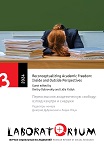
Academic rights and freedoms, as a distinct variety of human rights and freedoms, seem to follow a similar pathway both in their origins and in their further study. They appear to have emerged in conjunction with the establishment of science as a special form of interaction with the world, which separated from theology in the Middle Ages. The newly created distinctive community of scholars, and later teachers, began to reflect not only on the properties and qualities of the world around them, but also on the properties and qualities of their own corporation, defending intellectual freedom from any encroachments, first by the church, then by the state, and in the modern world by capitalist corporations. It is thus possible to explore the rise of ideas regarding academic freedom as “a freedom stemming from its infringement,” and academic freedom studies as a practical application of advocacy, which develops arguments for academic freedom’s defense, affirms its basic principles, and analyses major threats to it. One can argue that the history of the emergence and development of both academic rights and freedoms and their study is highly amenable to Alan Dershowitz’s hypothesis that the idea of human rights is paradoxically grounded in the history of their violation.
More...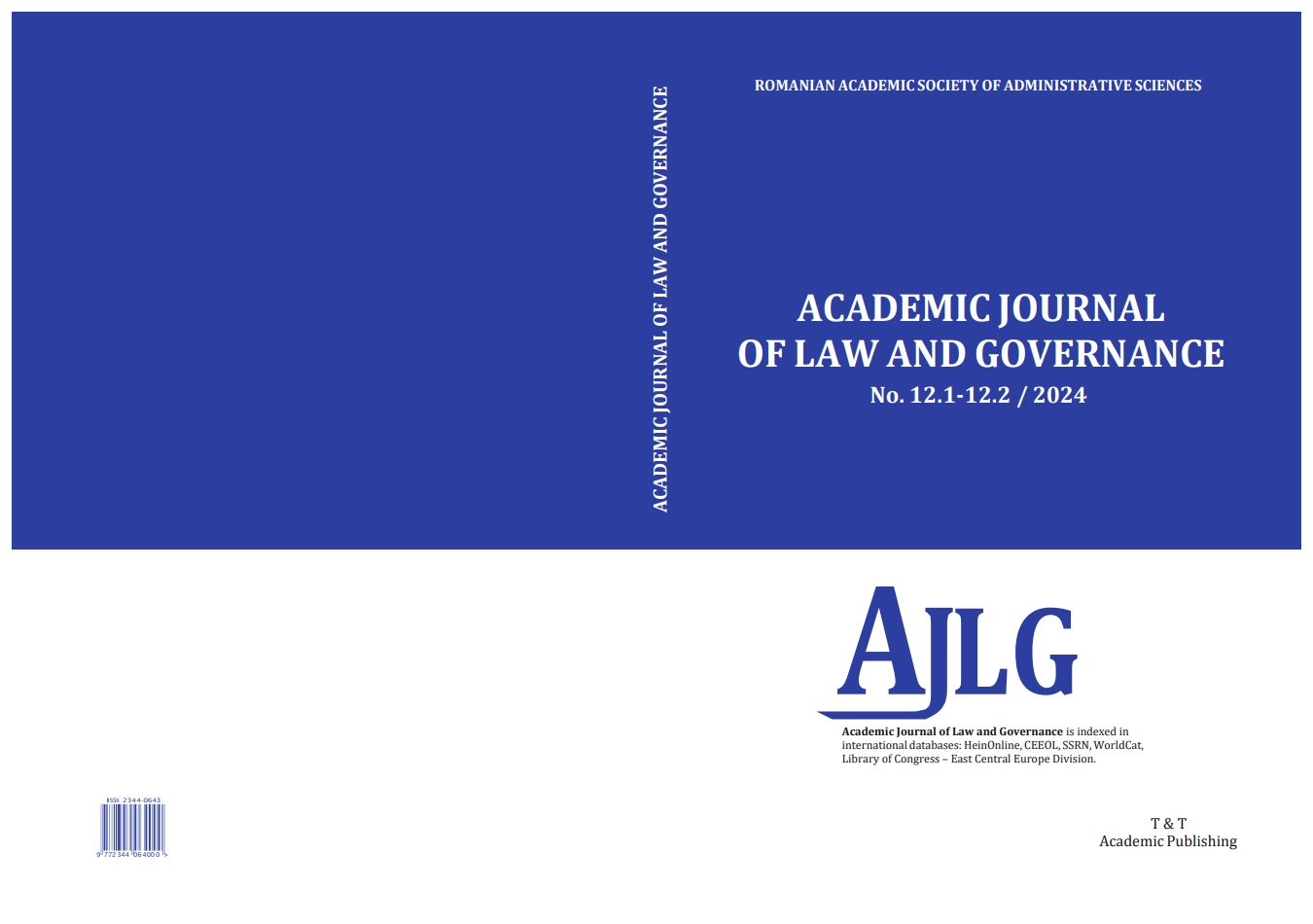
In the era of digitization of public administration, an extremely important problem that it faces is the protection of personality, because in this process a large part of citizens' personal data is stored and processed electronically. In this sense, it is essential that public authorities ensure by taking effective measures to protect personal data, but also to respect the right to privacy of citizens. The digitization of public administration comes with an open list of advantages, but also obstacles and challenges, for individuals (citizens), for legal entities, for the private environment, for the business environment, but also for society as a whole. The purpose of this article is to make known the challenges and obstacles that the public administration faces in the digitization process on the one hand, and on the other hand, what measures must be implemented in order to respect and ensure the protection of the personality. Achieving and ensuring the protection of the personality by the public administration in the digital era is essential, both for maintaining the citizen's degree of trust in the state authorities, and for respecting their fundamental rights. In order to achieve and guarantee the protection of the personality, the public administration must ensure that the civil servants who work with the personal data of citizens are adequately trained in data protection, as well as with knowledge and compliance with the legislation in force in the field.
More...
Romania is on the last place in the European ranking in terms of school dropout and early school leaving, given that the right to education is ensured by the Constitution, by the Charter of Fundamental Rights of the European Union and numerous regulations in the field of fundamental human rights. This paper aims to analyze the statistical data on early school leaving at the European level, the analysis of measures and strategies to combat early school leaving and school dropout in Romania and the analysis of students' opinion on the causes, measures and risks regarding school dropout in Romania.
More...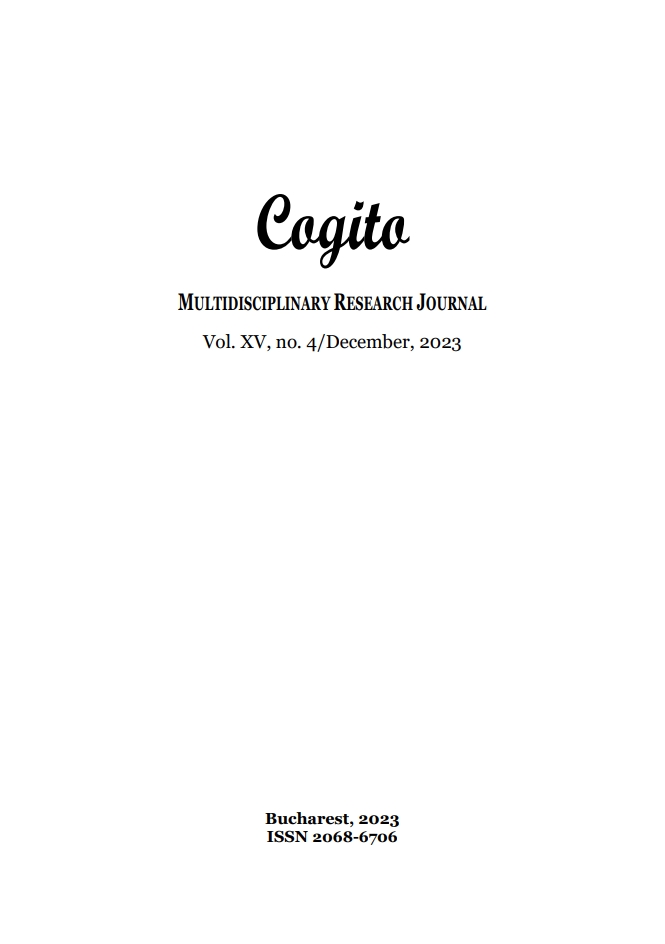
The paper analyzes the axiological aspects of the safe existence of society in conditions of global instability. The authors defined the essence of social solidarity as a factor of increasing stability in social systems. The importance of social justice for reducing the level of conflict in the existence of modern societies has been proven. The institutional importance of democracy and democratic values for the safe development of social systems is substantiated.
More...
Femicide, the intentional killing of women, remains a prevalent issue within the global terrain, posing significant challenges to societal progress and gender equality. However, despite the outcry and measures put in place to curtail the incidence of femicide, there seems to be an increase in femicide incidence. It is in this regard, that this study investigates the issues concerning femicide within the global terrain, examining its root causes, cyber-tech, and the legal frameworks in place to address issues of femicide. Pertaining to this, the study adopts a doctrinal method of study in examining the issues of femicide within the global terrain. The data generated through primary and existing secondary literature sources was analysed through descriptive and analytical approaches. The study found that there are increased incidences of femicide within the global terrain. Furthermore, the study also found that the potential of cyber-tech solutions to complement traditional legal approaches could aid in combating femicide effectively. The study therefore concludes and recommends that there is a need to intensify the legal structure and incorporate an enhanced cybertech system to prevent and mitigate femicide rates and promote gender justice across the global terrain.
More...
It is rightly believed that any community can develop and achieve sustainable policies as long as it feels safe. The need for security can be created and ensured only through an organizational entity. Historically, it has been established and demonstrated that the democratic state, which places in the foreground - man with his rights and freedoms, can best guarantee the safety of his citizens. We are of the opinion that a happy person is the one who feels safe, and the state, in its capacity as the Ordinator of social life, must guarantee the feeling of safety, skillfully oscillating between the positive and the negative obligation it has in this regard. The policy documents dedicated to certain areas demonstrate that they are a priority for the state, resulting from their importance as well as the impact they have in achieving the transformations and development of the targeted areas. In the same way, they have a very important role, demonstrating the state’s commitment to reach those set indicators, only when they are not supported by dedicated and responsible actions, they are risking to remain only at the declarative level.
More...